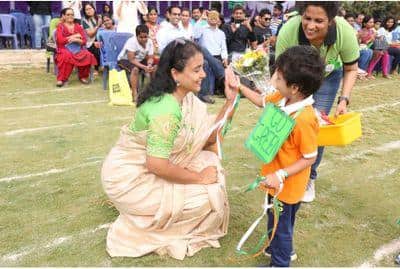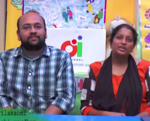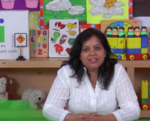As we all know that Natural disasters or man-made crisis such as car or plane accidents, or violent incidents like shootings or bombings happen very often these days.
Traumatic events can have major effects not only on those who have been directly involved in it, but also on people those who are close to them. It is important that we sensitize them on the issue, create awareness instead of keeping them away.
Ways through which parents can talk about Trauma with their Children:
Initiate the conversation:
Just because children aren’t talking about a tragedy/incident it doesn’t mean they’re not thinking about it. They may sense your discomfort and do not want to upset you by bringing it up, or they may be too overwhelmed by their own feelings to express them.
In most of the cases we see today, the child’s fears and fantasies are more frightening and disturbing than the truth. As and when the child starts asking questions or seems to be thinking about the event, it’s time to have a conversation with them.
Reassure them:
Tragedies do happen and take back our sense of safety, and our children’s too. Parents should be able to provide them with the reassurance like:
• Things will get better.
• Assure that you are and will be there for them.
• They can ask you any questions anytime.
• They are safe, and so are the people who they care about.
Children need to hear very clearly that their parents are doing all they can to take care and to keep them safe. They also need to hear that people in the government and other grownups who they don’t even know are working hard to keep them safe too.
Listen to them first:
Parents always want to be good listeners for their children, it’s especially crucial at the time of traumatic events. Which means giving them your full attention, no matter what they’re saying – how silly or illogical it may be.
Try finding out what they know:
By listening to their children, parents can discover the rumors that their children have already absorbed about an incident or tragedy. If it’s unclear what they are saying, a simple thing you can do is just ask them “What have you heard about this?” this trick will do.
Encourage children to share their feelings:
Whether it might be happiness, sadness, anxiety, fear, stress and even excitement—all feelings are possible in response to tragedy and violence. Whatever children are feeling, parents should be able to understand and accept them.
If we don’t let children know it’s okay to feel sad and scared, they may think something is wrong with them when they are really scared of something. If we can help them to accept their own feelings as natural and normal, they will be able to manage themselves.
Focus on the good:
As we know where there is tragedy, there is also heroism—acts done by police officers, doctors, or ordinary citizens that restore our faith in humanity when something is not right. The forces of good that we focus on turn into action with their love, support, and generosity.
Encourage children to act:
When we feel the pain of others, compassion motivates us to help them and to transform that pain into a feeling of connection and support. Encouraging kids to do something about what they’re feeling can give them an exposure and can restore their sense of control.
Have you ever talked to your children about racism or race? Maybe you think they’re still too young to understand or that a specific conversation isn’t really necessary?
Children need adult’s help to develop respect for and acceptance of others. Not talking about race and racism sends a message to children that this is a taboo topic, no matter what their age is.
Make them read picture books and show them TV shows and movies that celebrate children of all colours, cultures and religions. Include examples of those children doing everyday things so that they won’t see any difference.











